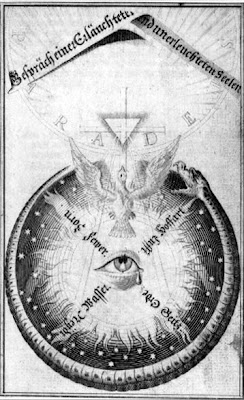In the campaign for President that is underway south of the border right now, it seems that none of the remaining candidates can go a single day without religion being injected into the conversation in some way, shape or form, even if subliminally. The latest brouhaha, which involves Senator Barack Obama's pastor, is a good case in point, as was Mitt Romney's pandering to the Christian right, who were suspicious of his Mormonism. The candidacy of Mike Huckabee was all about religion, whether he wanted to admit it or not.
Contrast this with the question of UFOs and ET. To the best of my knoweldge, it was only brought up once - when Tim Russert asked Dennis Kucinich his UFO sighting in a debate, and Kucinich replied that he had indeed seen a UFO, and then proceeded to apply any number of apologetic caveats.
Ask someone about UFOs, or ET, and people start to get embarassed. Ask them about God, and they stand up tall and take the question seriously. Indeed, they will often bring it up themselves.
It's not that there is anything wrong with religion - I'm a healthy but hopeful agnostic on the question of whether or not there is a God. It's also not that there is anything inherently right about asserting that ET has visited planet Earth - I'm a healthy but hopeful agnostic about that as well. The problem comes from the fact that one of these propositions is treated far more seriously than the other, and it's not the one for which there is actual evidence from the modern era.
When Hillary Clinton, or John McCain, or Barack Obama talk about God and how important He is to them, they are talking about a concept that cannot be proved in any rational way. Religion is a belief based on ancient stories that have been changed over the centuries in ways that would probably make them unrecognizable to the people who were actually there at the time. If I were to try and prove the existence of God to a jury of twelve reasonable people beyond a reasonable doubt, I couldn't do it. I seriously doubt anyone else could. It would still be a tricky proposition to do on the less onerous civil standard of the balance of probabilities.
UFOs as ET? I still couldn't do it beyond a reasonable doubt, nor could anyone else (hence the healthy agnosticism), but I would have a much better case, in terms of evidence, on the civil standard, than I would with God. For one thing, the evidence is fresher (Book of Luke vs. RB-47, for example). I could definitely prove that UFOs are an unexplained objective phenomenon; I think I could even swing the majority of a jury in favour of the proposition that at least some of them were likely extraterrestrial spacecraft.
This is why I have some sympathy for the exopolitics types, even though, as with people who believe in God, I think they have it wrong. They look around and see a world where in most countries religion goes hand in hand with political power, none more so in the democratic world than in the supposedly secular American republic (somewhere Thomas Jefferson is spinning in his grave). And yet they sit at the fringes of polite society, despite the fact that they can make a stronger case for their belief system than the religious people can.
Honestly - St. Paul on one hand, and, say, Philip Corso on the other hand. Is there
really a difference between the two, other than two thousand years, and the fact that Corso was properly vetted?
Paul Kimball



